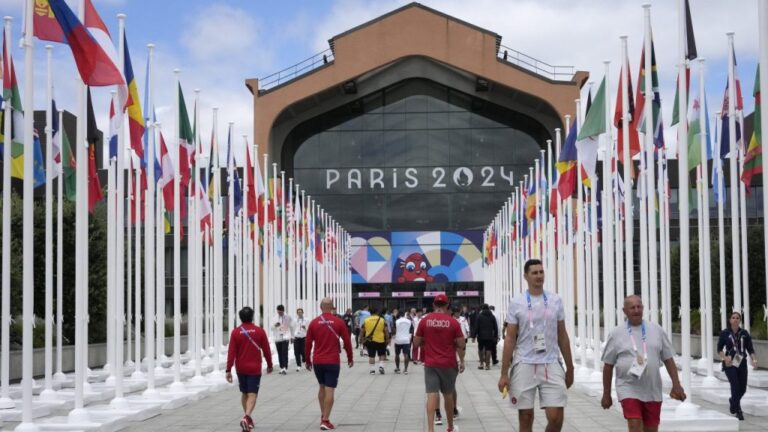The Super Bowl is a competitive arena not just for the teams on the field but also for the brands that buy commercial spots and sponsorships during the big game, but even that one-day branding paradise pales in comparison to the 18 days of the Summer Olympics.
Sponsors United released its 2024 Olympic Partnership Preview on Wednesday, examining the brands that were on full display at the Paris Games. The study analyzed how major brands such as Visa, Delta and Procter & Gamble are using the Summer Olympics to drive consumer engagement, and also explored the role that individual athletes and their huge social media followings can play for challenger brands looking to generate similar engagement without the huge costs demanded by the IOC.
The Olympic Games are a kaleidoscope of branding efforts between athletes and companies who are part of the Olympic Partner Programme (TOP), which grants these brands exclusive global marketing rights to the Olympics and the teams.
One of these top sponsors is Airbnb, which, according to the study, is looking to win the support of politicians and government agencies (at both local and global levels) by demonstrating how it can support cities at major events, especially compared to traditional hotels. The vacation rental company saw a 40% increase in active listings in the Paris area, and even offered stays at the Musée d'Orsay for a unique perspective on Friday's opening ceremony.
Airbnb doesn't have a big presence in sports marketing, especially within the French sports community. But SponsorsUnited CEO Bob Lynch sees the Olympics as an entry point to building long-term relationships beyond the IOC. “You have to think of the ecosystem around the Olympics as all of these individual regional trials and events,” Lynch says. “Even just within the Olympics and their federations' platform, I think there's an opportunity to start expanding it, rather than having this be a one-off coordination space.”
Overall, marketers in Paris should expect to see a big boost in exposure if NBCUniversal makes good on its promises to improve its content offerings on Peacock, the streaming platform into which Comcast has poured billions of dollars over the past few years. “Frankly, we didn't do a very good job for our customers[on Peacock]in Tokyo,” Mark Lazarus, chairman of NBCUniversal Media Group, said during a recent conference call about the COVID-19-delayed 2021 Summer Olympics. “We didn't deliver exactly what we said we would deliver, but we learned a lot from it. This time, everything will be available on Peacock, including bonus programming and specials.”
While Asia-Pacific has long been seen as a big growth area for global brands, Lynch said marketers had to evaluate how visible their messaging would be in Tokyo or Beijing when those cities hosted both the 2008 Summer Olympics and the 2022 Winter Olympics. “There's the question of whether (the event) will be broadcast live on the East Coast or is it pre-recorded?”
It helps that the world is not in the midst of a pandemic, although COVID-19 has not yet disappeared. The pandemic may have postponed the Tokyo Olympics for a year, but Japanese sponsors remain committed.
According to research from Sponsors United, 86% of sponsorship during the Tokyo Olympics will come from primarily local companies, with a quarter of those coming from the technology industry.
In contrast, two-thirds of Paris' sponsors are multinationals, with the finance and fashion industries playing a major role.
Notably, one-third of TOP partnerships will be renewed after the Paris Games, offering companies the opportunity to participate in future Olympic Games in Europe and the United States.
Milan, the French Alps and Salt Lake City will host the next three Winter Olympics, and Paris is due to hand over the Olympic torch to Los Angeles in just over two weeks for the 2028 Summer Games.
But Lynch doesn't believe U.S.-based companies will use LA28 to exclude other brands, including challengers who have sponsorship deals with Olympians.
That's because the ways in which fans, viewers and consumers can reach out continue to evolve. “There are more options and opportunities than ever before to engage with the Olympics in some way,” he said.
He also points out that today's athletes have social media followings that rival the reach of broadcast and cable TV of the past. “The athlete four years from now is a 16-year-old who is content-savvy, grew up around NIL and in many cases already has sponsorship deals. As brands take notice, the barrier to entry is much lower now. And four years from now, it's going to be a lot easier to build relationships and do something really compelling.”


